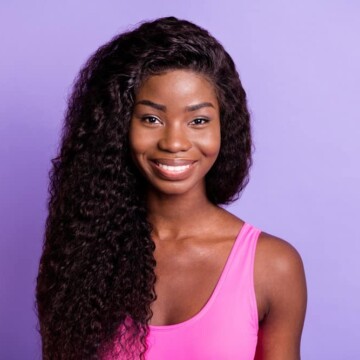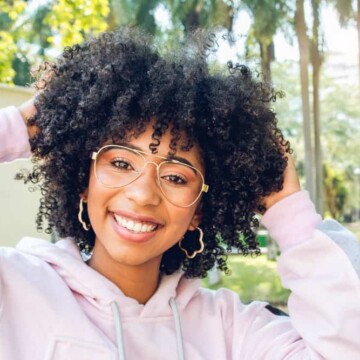
Straight, sleek hair is a widely sought-after hair goal for many women worldwide. And, in pursuit of that goal, countless people look to hair relaxers for permanent straightening.
Unfortunately, there's a lot of confusion surrounding relaxers - namely, who can use them? Even though hair relaxers are typically used by Black people, many white people wonder whether they can use them too.
In this article, we’ll answer this question in detail so you can decide whether you should give a relaxer a try on your Caucasian hair.
Table of Contents
Can a White Person Use a Hair Relaxer?

White people can use hair relaxers in a similar way to other ethnic groups. However, most of the time, hair relaxers are marketed toward ethnic hair. However, they do work on everybody regardless of their race.
While relaxers can be used on Caucasian, African, or Asian hair (for example) and any other hair type, hair texture plays an important consideration when choosing a hair relaxer.
Hair relaxers are chemicals formulated to straighten the hair, so the color of your skin does not matter. If you have curly hair and want it to be straighter and easier to manage, a relaxer is a suitable option.
A hair relaxer is a lotion or cream-based product used to straighten curly or coily hair. It changes the chemical composition of the hair, removing curls and kinks and making the hair much easier to manage.
There are no hair relaxers specifically meant for Caucasian hair either. Though relaxers come in various strengths, none of them are specifically meant for a specific race. They include calcium hydroxide, ammonium thioglycolate, and sodium hydroxide.
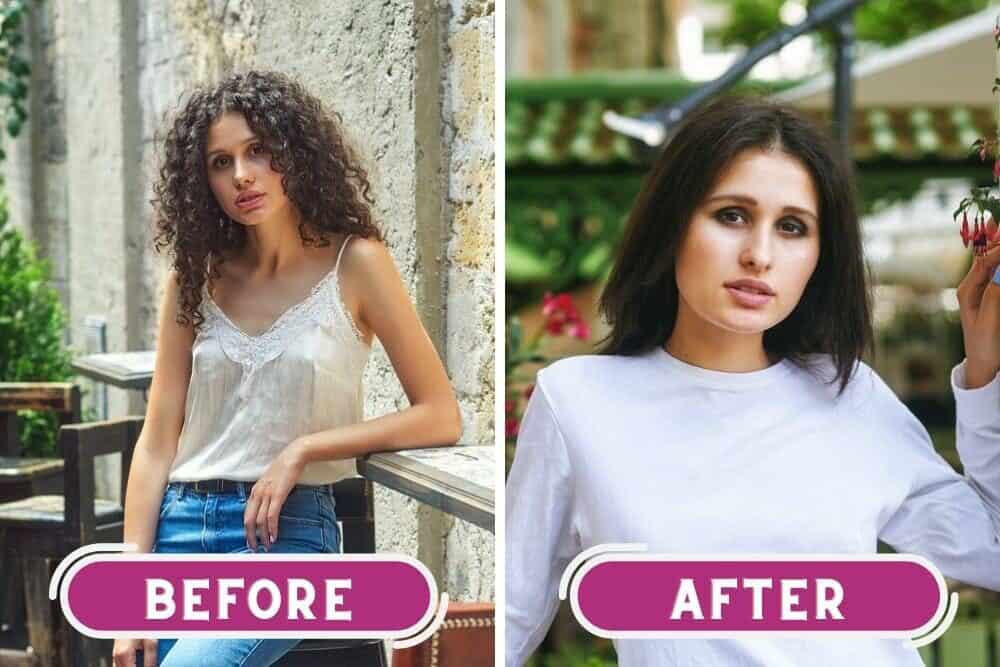
- Sodium hydroxide relaxers, widely known as lye relaxers, can be used on wavy, curly, or coily hair, but they are most suited for medium to coarse hair types. This is because they can easily ruin finer hair types due to the harshness of a lye relaxer.
- Calcium hydroxide relaxers, or no-lye relaxers, are formulated for people who can’t tolerate lye relaxers due to scalp irritation. Though this relaxer type is gentler on the scalp, it can be harsher to the hair than other relaxer types.
- Ammonium thioglycolate (ATG) relaxers don’t provide as much straightening power as the previously mentioned relaxer types, so these are typically the least used. They are not strong enough to relax ethnic hair and aren’t advertised as widely. However, for Caucasian hair that isn’t super curly, an ATG relaxer can be a great option. It’s suitable for anyone with generally fine hair.
When To Use A Hair Relaxer

If you are Caucasian with wavy or curly hair and would like to use a hair relaxer to straighten it, it is important that you use an ATG relaxer.
Since Caucasian hair is usually more prone to breakage from chemicals and tension, strong relaxers typically used on ethnic hair can easily damage the hair and cause it to break off.
However, if you are someone who gets their hair colored often, or if you have over-processed bleached hair in general, you may want to stay away from all hair relaxers.
If you’ve only used temporary, semi, or demi-permanent color on your hair, using a mild strength relaxer should be fine. It’s important to remember that you never want to color and relax your hair at the same time, as this can cause irreparable damage.
A hair relaxing service typically lasts anywhere from six to eight weeks. After this amount of time, you’ll need to get the hair growing underneath touched up with the relaxer solution. Never overlap previously relaxed hair with the new relaxer solution when getting the new growth touched up.
To ensure the integrity of your hair, we recommend going to a professional to get your hair relaxed. Relaxing your hair at home is rarely a good idea.
Risks Of Hair Relaxers

When getting your hair relaxed, it’s important to be aware of the complications that can occur. Here are some of the top risks of getting a hair relaxer.
Scalp Damage
Relaxers can cause severe hair damage and irritation to the scalp, especially if it’s prone to irritation. That’s why people with psoriasis, eczema, seborrheic dermatitis, or other scalp conditions should avoid getting a hair relaxer.
Even for people without these conditions, hair relaxers can often irritate the scalp and cause chemical burns, stinging, or itching. Always apply a layer of petroleum jelly around the hairline to keep the solution from getting onto your hairline.
Life-Threatening Ailments
Though it’s very rare, studies have shown that lye relaxers can cause many ailments that can negatively affect your overall health. Some ailments caused by excessive hair relaxers include reproductive issues, heart disease, certain cancers, and mental health issues.
Hair Loss
Hair loss ("hair fall" in some cultures) is a frequently cited side effect of using lye relaxers. When used incorrectly (and sometimes when used according to the instructions), they cause damage to the hair and scalp, which, in turn, can cause permanent hair loss.
Pros and Cons of Relaxers for White People
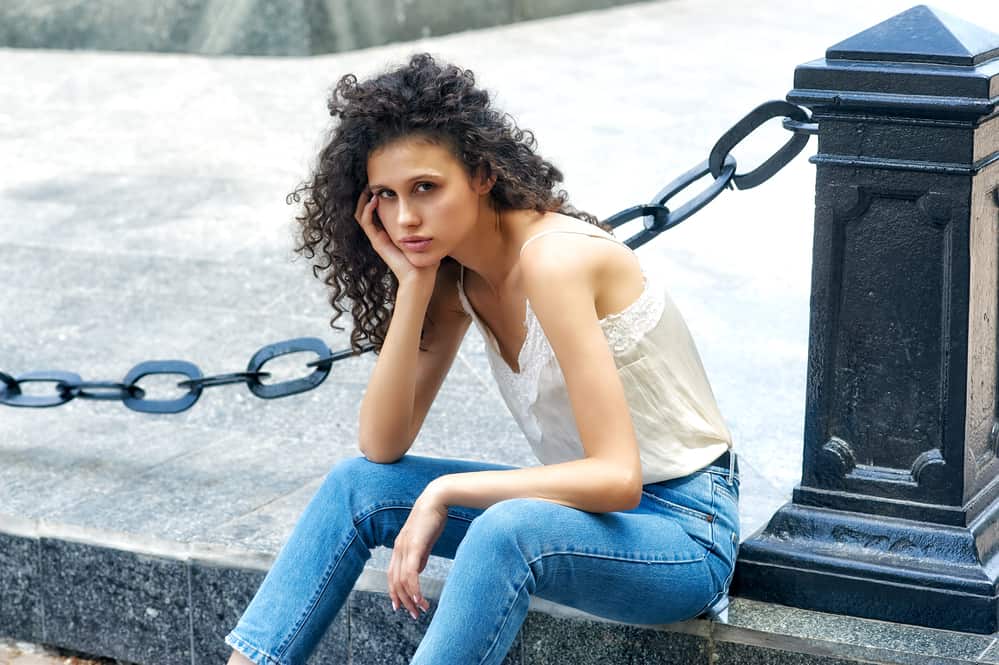
Now that you know the basics about relaxers for white people, let’s jump to some of the pros and cons you should know about.
Pros
- You get permanently straight hair in minutes. For people with curly hair who want their hair permanently straightened, a hair relaxer is one of the most effective options.
- Hair relaxers make the hair easier to manage. People with curly hair often have difficulty detangling and styling their hair. Getting a hair relaxer makes styling quicker and easier since the hair becomes smoother and less prone to tangles.
- Relaxed hair is better able to resist humid temperatures than natural curly or textured hair. With relaxed hair, you won’t spend time worrying about frizziness caused by humidity!
Cons
- Since relaxers permanently remove the curls from your hair, you won’t be able to wear your hair curly unless you wand curl or set it in rollers, straws, twists, braids, etc.
- You’ll need to go to the salon every six to eight weeks to get your roots touched up. Many people assume that once you get your hair relaxed, it’s straight forever. And this is true for the parts of the hair that are relaxed. However, when new hair growth comes in, you have to get it retouched with the relaxer solution.
- Since hair relaxers affect the chemical structure of the hair, they can weaken the hair strands. The risks vary depending on your hair type and whether you've previously color-treated your hair. But it is something to keep in mind.
Dos and Don’ts of Relaxers for White People
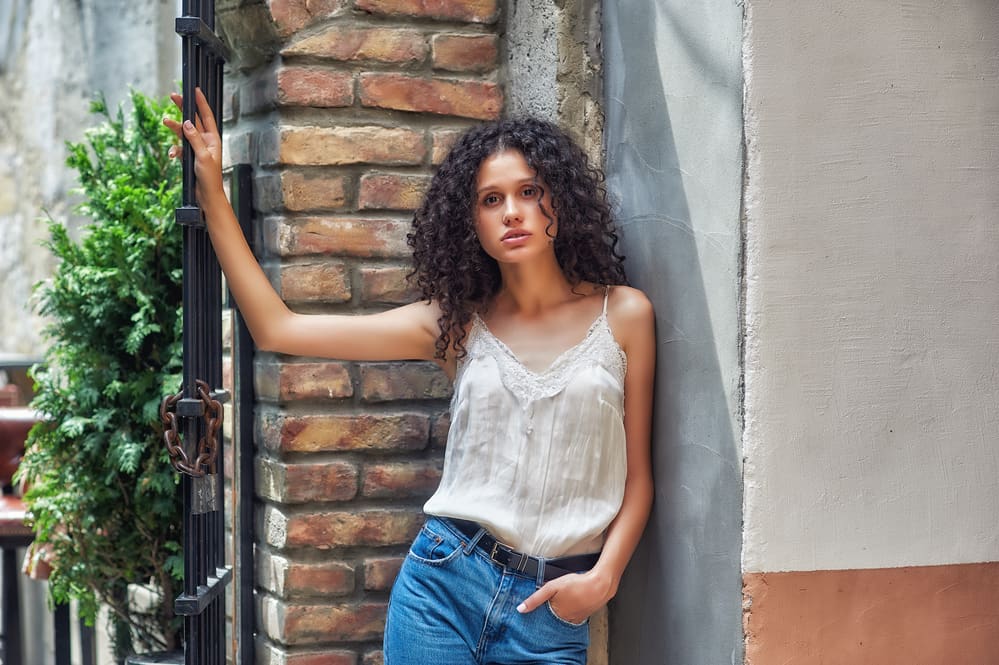
If you do decide to go through with getting your hair relaxed, there are things you should be sure to do as well as things to avoid. Here are the do’s and don’ts of getting a hair relaxer.
Dos
- Do apply a layer of petroleum jelly around the hairline to ensure the relaxer solution does not get on the skin around your hairline. This has been shown to cause less irritation and it prevents the solution from getting near the eyes and facial area.
- Do go to a professional hairstylist to get your relaxing treatment done. The risks of adverse effects are much higher when you attempt to relax your hair by yourself at home. To avoid complications, going to a professional is essential. Note: There is no such thing as a safe hair relaxer; the process of relaxing hair will always involved significant risks.
Don’ts
- Don’t scratch, brush, or comb your hair or scalp before getting a hair relaxer. This is almost guaranteed to cause irritation during and after the relaxer, as it can form tiny micro-abrasions on the scalp. Using a hair brush might seem harmless, trust us and please heed this advice prior to getting a relaxing your hair.
- Don’t get a hair relaxer if your hair has been over-processed, bleached, or colored with henna. This will likely make your hair weak, cause damage to your strands, and result in brittleness, split-ends, and hair breakage. Relaxers permanently change the structure of your hair due to the chemical process that your hair undergoes.
- How To Relax Curly Hair Without Damage
- How To Lay Edges on Caucasian Hair
- Protective Hairstyles for Caucasian Hair
- Can a White Woman Use Black Hair Products?
To sum things up, hair relaxers are typically marketed towards those with afro-hair textures, as this is the demographic that most often uses hair-straightening products.
However, hair relaxers are made for all curly hair regardless of race. For Caucasian hair, it’s important to use a low-strength relaxer, and you should always be aware of the risks that could occur. For best results, going to a professional hairstylist is recommended. We wish you the best of luck with your hair!

